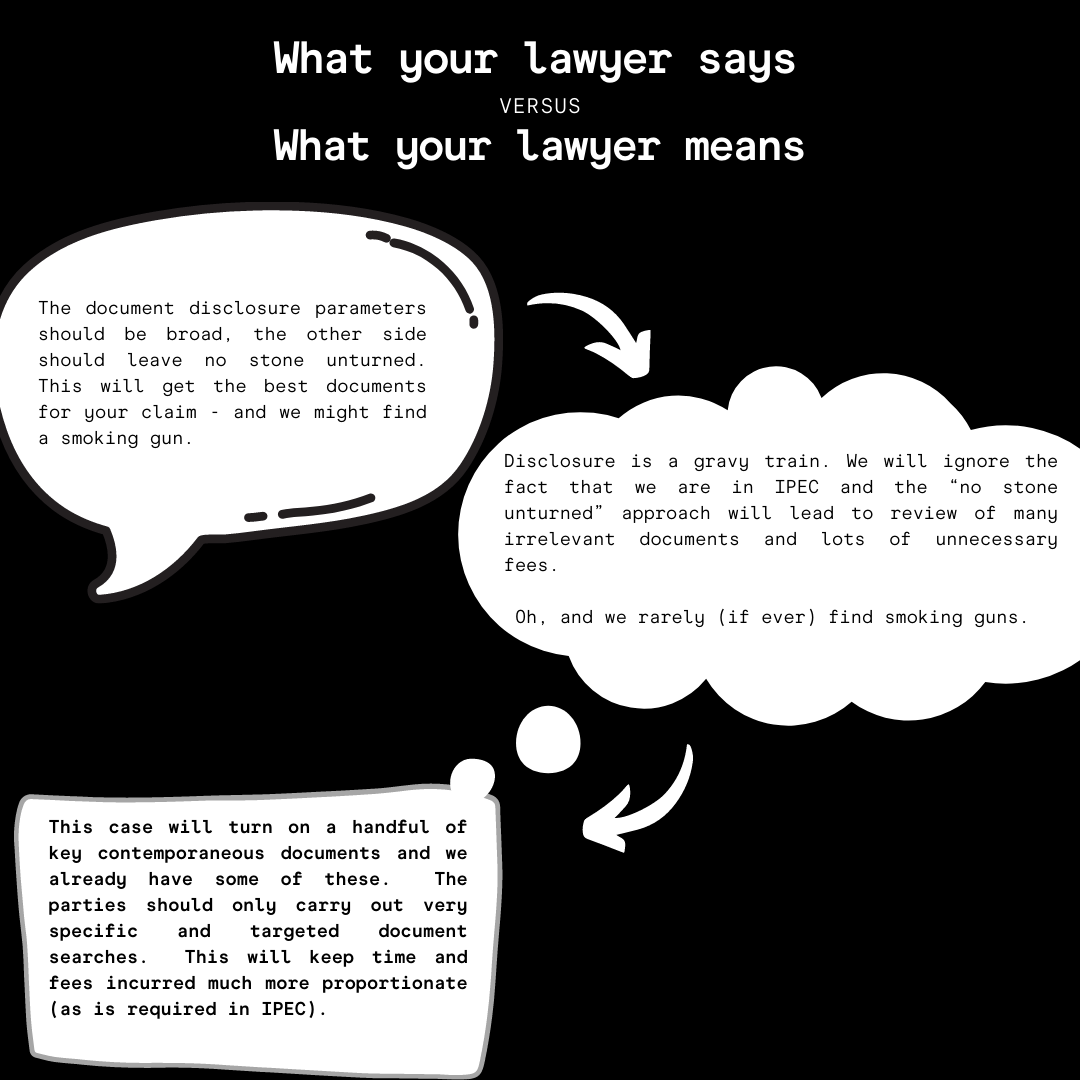
When a brand owner chooses to bring a claim in IPEC, the process should be far simpler (and cheaper!) than bringing a High Court claim. However, brand owners are being pushed to substantiate a broad range of claims, directed to scour their business for voluminous documents, and asked to fund hearings to resolve satellite spats with the other side.
Pleadings in IPEC are supposed to be drafted as concisely as possible and brand owners should be encouraged to stick to one or two main claims. However, parties in IPEC (or their lawyers) are often tempted to throw in numerous claims when one would suffice – e.g. a claim for copyright infringement of a database could also involve claims for breach of confidence and breach of contract but the claimant simply needs a judge to determine whether their works have been copied. IPEC isn’t the place to start with multiple claims and then expect the parties and the courts to filter them out as the litigation progresses.
Similarly, when it comes to evidence, IPEC is not the place for broad-brush disclosure parameters, multiple witnesses, and detailed expert evidence. Pleadings are meant to stand as evidence-in-chief; a rule often overlooked by lawyers.
Only specific disclosure is available in IPEC but this doesn’t stop excitable lawyers pushing for disclosure of multiple and far-reaching categories of documents. It is the perfect fee-generation exercise to cast the net as wide as possible. The reality is that only a few key documents will make their way to trial. In the interest of their clients, lawyers should try to keep time and costs spent on disclosure to a minimum.
Lawyers in IPEC should start from the assumption that there is no need for witnesses of fact or expert witness evidence. Brand owners should challenge lawyers who want to locate and proof multiple witnesses in an IPEC claim. Witnesses of fact should only be used to plug a gap in evidence that is central to the claim and is not already covered by the pleadings and documentary disclosure. If experts are required in IPEC, care should be taken by the parties – working together – to refine the key issues on which evidence can be adduced.
Brand owners should be aware of how IPEC is different to the High Court and should ask what their lawyers will be doing differently in IPEC to make sure they are acting in the most cost effective way.
Send us your thoughts:
Would you like to read more articles like this?
Building 1000
Cambridge Research Park
CB25 9PD
Fax. 01223 425258
info@iamstobbs.com
Privacy policy
German office legal notice
Cookie Declaration
Complaints Policy
Copyright © 2022 Stobbs IP
Registered Office: Building 1000, Cambridge Research Park, Cambridge, CB25 9PD.
VAT Number 155 4670 01.
Stobbs (IP) Limited and its directors and employees who are registered UK trade mark attorneys are regulated by IPReg www.ipreg.org.uk

